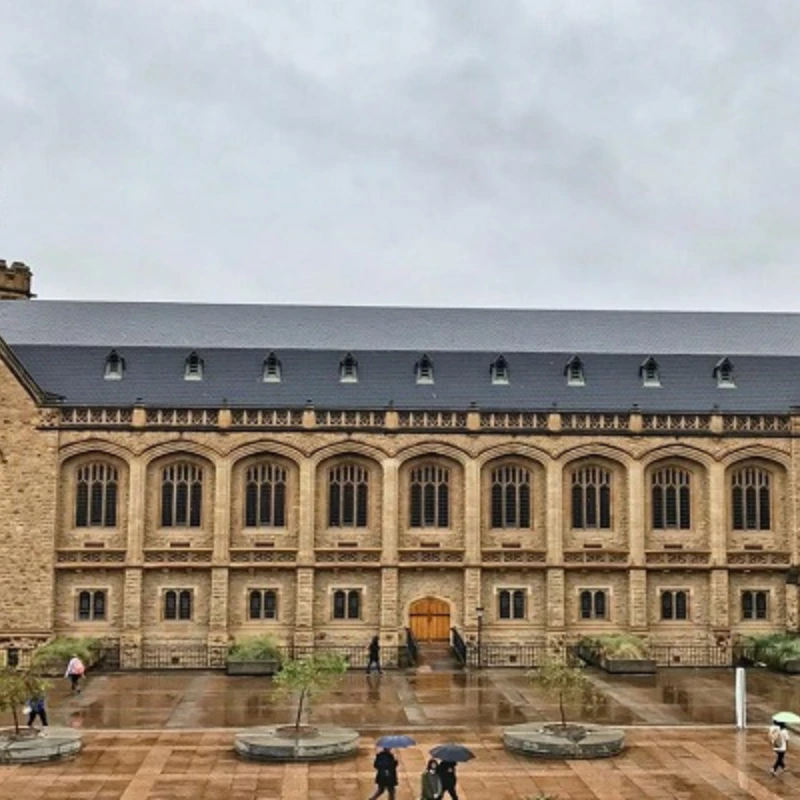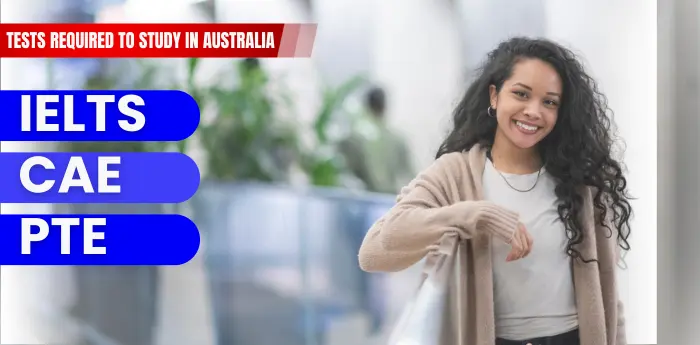
Announcements

Announcements
The Study in Australia program is increasingly becoming the choice of international students looking to pursue their education abroad. As per the global reports, along with the United States of America & the United Kingdom, Australia is also among the top three-study abroad destinations with 600,000+ overseas students seeking admission every year to study in Australia. A recent report reflects that approx. 1,22,000 Indian students, including new and continuing students, have filed for an Australian student visa. Hence, reflects a massive demand or interest of study in Australia for Indian students.
A key reason for such a massive demand is the nation’s favourable policies for overseas students. Reports reveal that the Australian government invests AUD 254 million in scholarships annually. Australia has over 11,000 institutions and 22,000 degrees available, including nine Australian universities that are among the top 100 globally, according to the QS World University Rankings 2026. Also, The United Nations has named Australia the second-best country to enrol for overseas education and to get settled due to its higher per-capita income.
You get student support services to study in Australia. International students receive strong support services to help them settle in and adapt to a new environment. Plus, you can work while studying. Student visas allow for part-time work during studies and opportunities for unlimited work during holiday breaks, helping with living costs.
If you plan to study in Australia, check out the key highlights below.
| Total Universities | 43 |
| Universities Ranking in Top 100 Globally | 09 (2026) |
| Education Levels | Primary, Secondary & Tertiary |
| Tertiary Education Regulator | Australian Qualifications Framework (AQF) |
| ELP Test Scores Required | IELTS / PTE / Duolingo |
| Standardised Test Scores Accepted | UG : SAT PG : GRE / GMAT(Not required in all the universities as admission is given based on academic eligibility) |
| Undergraduate Admission Eligibility | ATAR (12th scores) + Entrance Test scores (not required in all the universities)+ ELP scores |
| Postgraduate (Taught & Research) Admission Eligibility | Bachelor’s degree + Entrance Test scores (not required in all the universities ) + ELP scores |
| Australian Qualifications Recognised | In over 140+ countries globally |
| Australia University Acceptance Rate | Moderate to highly selective (90%) |
You must learn about all the expenses when planning to study in Australia. International students must know about the tuition fees, cost of living, other expenses, etc. The fees differ with course and level of study.
The average study cost in Australia is briefed in the tabulated form below.
| Sector/Program | Yearly Fees (AUD) | Annual Fees (INR) |
|---|---|---|
| ELICOS | 12,600 | 6.77 lakhs approx |
| VET | 4,000 to 30,000 | 2.22 lakhs to 16.27 lakhs |
| Foundation Courses | 15,000 to 33,000 | 8.35 lakhs to 18.37 lakhs |
| Undergraduate Programs | 15,000 to 50,000 | 8.35 lakhs to 27.12 lakhs |
| Postgraduate Programs | 14,000 to 50,000 | 7.79 lakhs to 32.46 lakhs |
| Doctoral Programs | 14,000 to 37,000 | 7.79 lakhs to 20.60 lakhs |
Find the right path with Meridean
While selecting a university, you need to consider many things, like your area of interest, your past academic experience, the cost of studying, and much more. Also, you should know your best options so that you can review them closely before sending the applications. All the top universities to study overseas in Australia provide all three intakes and welcome international students with open arms.

#14
QS World Ranking

#18
QS World Ranking

#19
QS World Ranking

#30
QS World Ranking

#37
QS World Ranking

#40
QS World Ranking

#77
QS World Ranking

#82
QS World Ranking

#88
QS World Ranking

#123
QS World Ranking
Admission requirements for international students applying to universities in Australia vary depending on the level of their study. Typically, both sets of students will have to present the following documents:
Connect With Meridean & Get Your Abroad Education Dream Fulfilled
Submitting your admission application before the deadline is vital to avoid delays. You must have all the information regarding the intake and their deadlines. These deadlines may differ with course and university.
The best universities in Australia for international students have the largest number of students and courses, especially for long-term courses. You just need to pick the intake wisely as an international student.
Australia has three intakes, which are as follows:
There are three intakes in Australia for International students. These are as follows:
The Feb intake in Australia is widely approached by indian students. You just need to check whether the course you want to enrol in is available in the intake or not. Then, apply to the universities in Australia without IELTS.
Students need to check all requirements and fulfil them before time so that they do not miss out on this opportunity.

Australia is known for its wide range of courses in 51 streams of Engineering, business, medicine, arts and humanities. Here are some popular courses for international students to opt for.
Computer Science
Cybersecurity
Automotive Engineering
Aerospace Engineering
Social Work
Psychology
Nursing
Business Analytics
MBA
Architecture
Accountancy
Law
Tourism and Hospitality Management
Agricultural Sciences
Biomedical Engineering
To study in Australia, students must prove their English proficiency by submitting their English proficiency test scores. Mostly, Universities in Australia accept the scores of IELTS, TOEFL, PTE and CAE(very limited universities) The score may differ depending on your chosen university or courses.

Students wishing to study in Australia must apply for a Student Visa. The type of visa required depends on the duration of the course. Australian universities suggest and prefer the Simplified Student Visa Framework (SSVF) for Australian student visas.
International students who qualify for admission to Australian universities and obtain their CoE or enrollment confirmation must apply for a student visa. Applications for student visas to study in Australia are accepted online. If applying for an undergraduate course in Australia, international students must apply for a subclass 500 visa, while those pursuing a graduate study must apply for a subclass 485 visa.
Subclass 500 visa : A subclass 500 visa in Australia costs AUD 710 (approx INR 39,705) Students can stay in Australia for up to five years with this visa, depending on their study degree.
Subclass 485 visa (Post-study work) : The subclass 485 Temporary Graduate visa cost in Australia is AUD 1,895 (approx. INR 1,05,971). Applicants with this visa have a stay-back period of two to four years.
Australia is a popular destination among international students. The country offers good quality education, courses, financial aid, and the best career opportunities. Here is a list of scholarships available to study in Australia:
| Scholarships Name | Amount/ Expenses Covered |
|---|---|
| Australian Government Research Training Program Scholarships |
|
| CSIRO Scholarship Program |
|
| GyanDhan Scholarship |
|
| Destination Australia Scholarship |
|
| John Allwright Fellowship (JAF) |
|
| CSIRO Data61 Scholarship Program |
|
| Endeavour Postgraduate Scholarship |
|

I applied visa for Australia through this website . Mr. Prashant &Mr. Prakash made the job hastle free for me. They were friendly, helpful & available all the time .My work is done in a smooth way & I highly recommend them. Moreover, you can book the free counselling session with them that give you the proper guidance to study abroad. I have no complaints and I am very grateful for the support 🙏

Meridean Overseas is best in Ahmedabad. Prashant Sir is very supportive and gives his best efforts for every applicant’s visa process. They have very good coordination with universities in Australia. I got Australia Dependant Visa today, so very happy for this and very thankful to Prashant Sir from Meridean Overseas, his work is best. I am extremely happy with the Meridean Overseas Education, Ahmedabad.

I would like to thank you very much for your time and support during my visa adjustment process and for helping me to obtain the desired outcome. I am also very thankful for your help in preparing me for the university interview which made the approval of my visa adjustment very successful. Best institute in India if you want to study abroad. I am personally thankful for SOMYAA KHANGAROT ma’am. She is very supportive and also motivates the students. Again thank you so much MERIDIAN Overseas and their team. ❤️💕

Vineeta, the stellar counselor at Meridean Overseas, made my study visa journey for New Zealand overseas education hassle-free. Actually i didn't put my file in merdian, but I put in another consultancy, they are not gave such support. Also, I am wroking person. One day I see Video in Instagram and contact to Meridian Overseas. about my visas queries and my visa slots. So they always help me in without any fees. On that day my consultancy didn't call me for the slot opening. But Merdian team call me for the slots and because of that I booked my slots.
So I Appreciate their work and Also, I recommend to my family member and friends.

First of all i would say full team of Meridean Overseas is very hard working generous and supporting people and my consultant Mr. Shubhang is very honest and very supportive person and while in the meeting. He told me each and everything clearly and nicely. I was really very impressed and got so many information during the meeting. And you all won't believe the meeting was absolutely free . You can also go and meet the team They are very friendly and clean as glass. If you are willing to go to abroad please consider them and give them a chance to consult you.

I had a wonderful experience with Meridean Overseas. My counselor's name is Miss Tanya Soni. She was incredibly helpful in every aspect, her guidance helped me a lot in understanding my process and solving my problems with the best possible solutions. I am very interested in studying in Poland, and Tanya ma'am helped me significantly, because of her guidance, my dream has come true. I'm very grateful for choosing a counselor from Meridean Overseas.

So far, my experience with Meridean Overseas has been truly remarkable. The experts at Meridean Overseas possess impressive knowledge and demonstrate a strong commitment to providing friendly service to their clients. My process consultant Miss Rashi, stands out with her profound understanding and consistent helpfulness. She is adaptive and ensures the completion of tasks in a timely manner. The team responds promptly to queries, and I am genuinely satisfied with the assistance received thus far. I have high expectations that the remainder of my visa application process will be handled with the same level of professionalism and efficiency.
Thank you, Meridean Team.

My experience with MOEC has been great. I would recommend MOEC for students who wants to pursue their further studies in abroad as their staff is extremely helpful and suggests the best. My counsellor has been really supportive throughout the entire process, from course selection to till visa approval. She always clarified my doubts and helped me in every single way possible and I highly appreciate it.
Ans. Australian universities have diverse and inclusive campuses with a culture of open-mindedness and hospitality. Moreover, Indian festivals, such as Diwali and Dussehra, are celebrated, making it feel like a home away from home.
Ans. Australia has a low crime rate and is ranked amongst some of the safest countries in the world. Moreover, universities offer security escorts when needed and have policies and procedures in place to ensure the safety of scholars. Even though the country is considered safe, students should still take general precautions and be aware.
Ans. Australia provides a wide range of possibilities for student housing, including dorms, apartments, homestays, hostels, and more. Students can join Facebook groups and seek housing options on websites like Flatmates and 2stay.
Ans. Australian universities have an excellent reputation across the globe. Additionally, the government oversees the entire educational system, ensuring a high standard of academics. As a result, graduates from Australian institutions are sought after by employers worldwide because of the international credibility of an Australian degree.
Ans. A bachelor's degree in Australia typically costs between 15,000 and 50,000 AUD (8.29 lakhs to 27.12 lakhs INR) each year, whilst a master's degree in Australia may cost between 14,000 and 60,000 AUD (7.74 lakhs to 32.46 lakhs INR) annually.
Ans. Those interested in pursuing a Bachelor's degree programme in Australia must have completed high school with a minimum average of 65%. To study for a master's (MS) in Australia, one must have completed 15 years of schooling with an excellent academic record and an IELTS score of 6.5.
Ans. To improve their chances of admission, international students must be informed of which tests are accepted by most Australian universities. IELTS, PTE, GRE, GMAT, and LSAT are some of the most popular tests which are required for admission to some of the universities in Australia.
Ans. In Australia, graduate entrance requires a minimum IELTS score of 6.5, whereas undergraduate admission requires a score of 6.0.
Ans. There are two major intakes in Australia 1st- Feb intake and 2nd July. Both intakes are highly preferred by Indian students.
Ans. International students who wish to receive full scholarships in Australia may apply online using the Online Australia Scholarships Information System. Applicants will be required to show their eligibility while applying for scholarships. Remember to check the scholarship deadlines before applying.
Contact MOEC Experts for Study Abroad Guidance!
